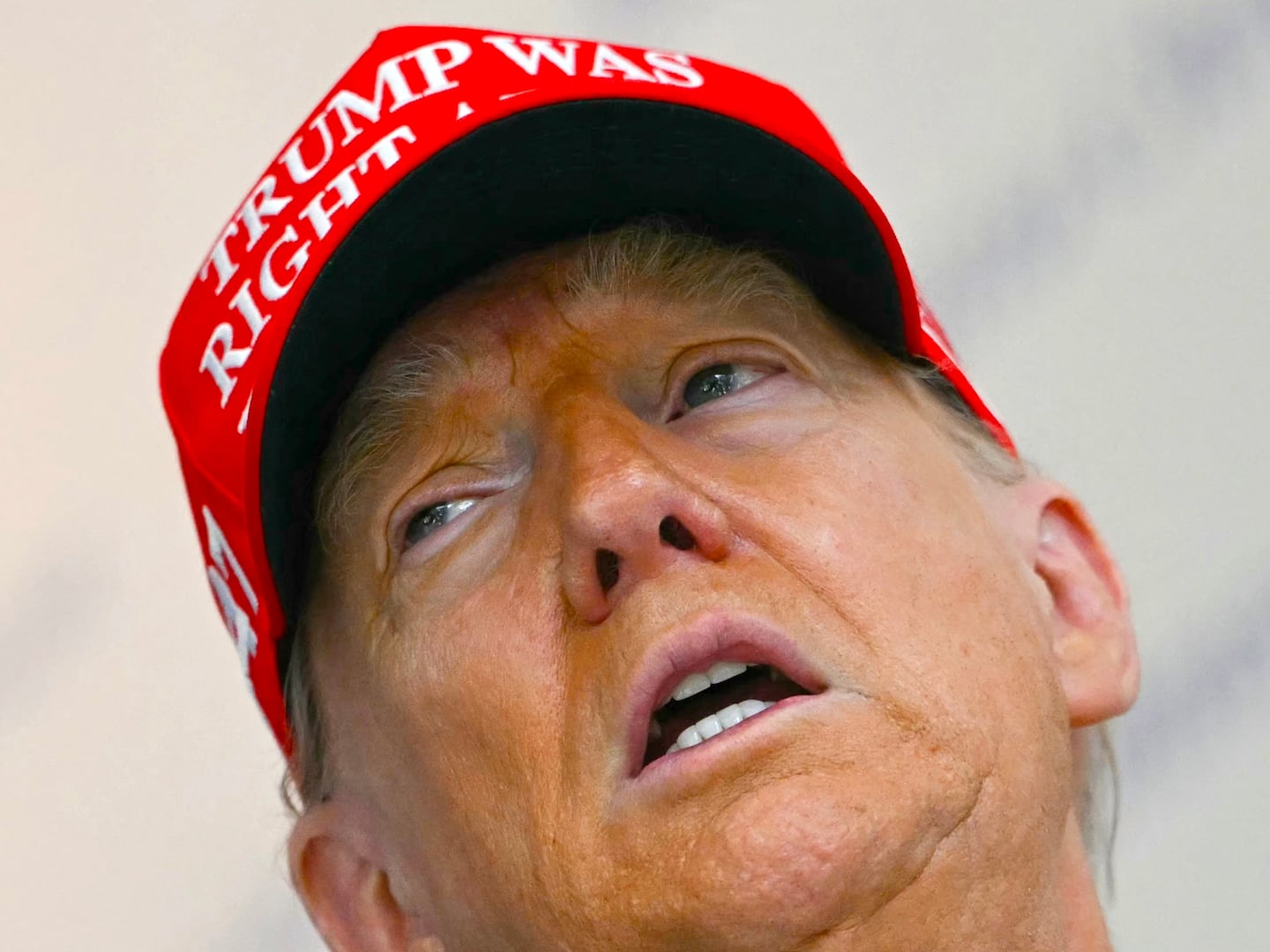Every so often—okay, not very often actually, but more often than I hunt, or “take” (what a verb!), lions—I feel a little wistful about the Republican Party we all once knew. And that feeling is never stronger than when I reflect on the history of Medicare and Medicaid, which I spent part of yesterday doing, what with it being the 50th anniversary of the passage of the bill and all.
Lyndon Johnson went into the 1964 election knowing that he wanted to pass a universal health-care bill. He figured he couldn’t get full-bore socialized medicine, so he settled on socialized medicine for old people, reckoning that was a winner. Immediately upon winning election, he directed aides to get cracking, saying as I recall something to the effect that he was going to lose a little political capital every day, so the sooner the better.
It was big and messy and complicated, just like Obamacare, and frankly, Johnson lied about the cost, back in those pre-Congressional Budget Office days. But it passed, and it passed in a way that wasn’t just like Obamacare at all. Thirteen Republican senators voted for it, and 17 against; and in the House, 70 Republicans supported it, while 68 voted no. In other words, almost exactly half of all voting congressional Republicans, 83 out of 168, voted for the program that Ronald Reagan at the time was warning heralded the arrival of Marxism on our shores.
Pretty different GOP, eh? Well, now check out the numbers from 1983. This was, to be sure, more of a compromise piece of legislation. The Social Security Trust fund was in trouble at the time, so the 1983 amendments raised the payroll tax while increasing the retirement age to 67 for those born in 1960 or after, with the new revenue going to Medicare and Social Security. And of course you had a Republican president then, and not just any Republican president; so if Ronald Reagan was okay with a tax increase, they were, too. It passed both chambers overwhelmingly; House Republicans backed the 1983 changes 97-69, while Republican senators supported them by 47-6. (PDF)
It’s worth recalling all this on the anniversary of this great law because soon enough, we’re going to start hearing the usual attacks on Medicare. Wait, did I say soon enough? We already are! And not from the wingnut caucus. It was the, uh, moderate, Jeb Bush, who said just last week that Medicare is “an actuarially unsound system” and that “we need to figure out a way to phase out this program.”
All right. Now I’ll grant that times have changed since 1965 and 1983, and that we’re going to see all those Baby Boomers retire in the coming years. But let’s be clear about a central fact. The Medicare Trust Fund is not in big trouble right now. A few years ago, it was; there were desperate predictions that it was going to go broke in five years, three. I remember 2017 being mentioned as the ominous year, and 2017 is pretty close.
But that has changed. Now, the experts say Medicare is stable until 2030. Now 2030 isn’t infinity and beyond, but it’s not tomorrow either. The crisis has eased, and it has eased considerably.
What changed? Some of the reasons are just too wonky for me to go into with you in any detail, having to do with things like new strategies to reduce preventable hospital admissions. But another seems to be…wait for it…Obamacare. Ever since the passage of the Affordable Care Act, per-enrollee Medicare costs have decreased a little and are rising more slowly than overall health-care costs, and somehow or another the Medicare trustees have added 13 years to the program’s solvency.
In fact, let’s go mildly wonky here. This is worth knowing. Before the ACA passed, projections of Medicare bankruptcy were pegged, as noted, at 2017. Then shortly after the ACA became law, that was pushed to 2024. Then in 2013, it was nudged to 2026. Now it’s at 2030. See a pattern here? The main reason is simple: Overall spending is lower. You might remember Mitt Romney’s famous attacks on Obama for cutting $716 billion from Medicare, which took some cheek given that a) Republicans’ own projected cuts under Paul Ryan’s budget were far more severe and b) Ryan and other Republicans used the same budgetary assumptions Obama used for all their Medicare “reform” plans.
Just remember all this, will you, as you hear more from the Republicans on this topic. They are all going to say: Medicare is a disaster; it’s broke; Obamacare has made it far worse. They’ll say things that one can hardly believe can be said a person we’re allegedly supposed to be taking seriously, like Marco Rubio’s amazing comment that Social Security and Medicare “weakened us as a people.”
None of what they say will be true. But they’ll say it and say it, and the conservative media will repeat it and repeat it, and we’ll be in that “no, the sky is green and the grass is blue” territory that we know so well. And of course, their “reform” plans are, aside from being just mean, a total fantasy. The way Medicare works is so complicated and so embedded into our national life that the disruptions to doctors and hospitals and service providers of all kinds would be horrific. Only rich people, who don’t really need Medicare, and ideologues, who despise it, think you can do this. They might as well propose rerouting every single Interstate highway in America.
But most of all, it doesn’t need changing. Or actually it does, but in the direction of being expanded, as Bernie Sanders says. That’s probably not in the cards for the foreseeable future, although it will certainly come one day, perhaps by the time of Medicare’s own 65th birthday, when the people will surely be due for another “weakening.”






